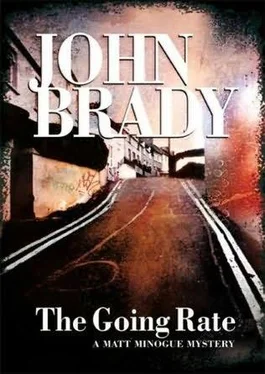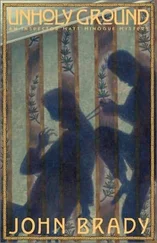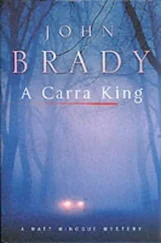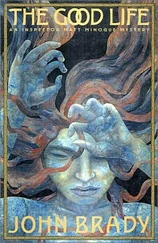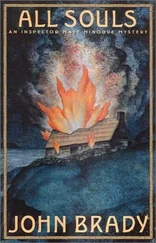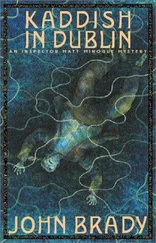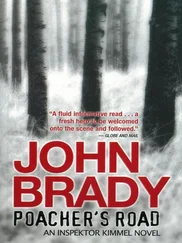John Brady - The going rate
Здесь есть возможность читать онлайн «John Brady - The going rate» весь текст электронной книги совершенно бесплатно (целиком полную версию без сокращений). В некоторых случаях можно слушать аудио, скачать через торрент в формате fb2 и присутствует краткое содержание. Жанр: Полицейский детектив, на английском языке. Описание произведения, (предисловие) а так же отзывы посетителей доступны на портале библиотеки ЛибКат.
- Название:The going rate
- Автор:
- Жанр:
- Год:неизвестен
- ISBN:нет данных
- Рейтинг книги:4 / 5. Голосов: 1
-
Избранное:Добавить в избранное
- Отзывы:
-
Ваша оценка:
- 80
- 1
- 2
- 3
- 4
- 5
The going rate: краткое содержание, описание и аннотация
Предлагаем к чтению аннотацию, описание, краткое содержание или предисловие (зависит от того, что написал сам автор книги «The going rate»). Если вы не нашли необходимую информацию о книге — напишите в комментариях, мы постараемся отыскать её.
The going rate — читать онлайн бесплатно полную книгу (весь текст) целиком
Ниже представлен текст книги, разбитый по страницам. Система сохранения места последней прочитанной страницы, позволяет с удобством читать онлайн бесплатно книгу «The going rate», без необходимости каждый раз заново искать на чём Вы остановились. Поставьте закладку, и сможете в любой момент перейти на страницу, на которой закончили чтение.
Интервал:
Закладка:
Fanning had been to book launches here. No-one he had met those times seemed to be interested in the fact that ten years ago this area was where you’d come to fence stuff, to rent a gun, to buy heroin.
Oh oh: Breen had spotted him. He held up his hand, his fingers spread, and then detached the mobile slightly from his ear. He issued the smile and the eye-roll that Fanning had predicted, and went back to his call. Fanning had mustered a smile, and he slowly nodded his understanding.
His chest felt overfilled. He took a few steps toward the door of the restaurant, and made a last effort to get his thoughts in order. With Breen you basically had one minute, and it had to be clear and simple, the less said the better. Breen wouldn’t admit to calling it a pitch, of course. It was always “a chat,” or a “bring me up to date.” He wanted to just gossip, or tell a joke, or drop names and tell anecdotes.
Fanning let his breath out slowly and drew in another just the same. He was conscious of his smile, and maintaining it. Smiling alone, the act of it, made one relax, he had read.
Breen knew what the business wanted, network or studio. For one thing, poverty in Ireland didn’t sell anymore. As a matter of fact, Ireland didn’t sell anymore. Anyway, as Fanning well knew, the whole business was full to the gills with talent and writers. A few of the younger ones were smart enough to latch on the foreigner thing, like that Mira’s Story, about the divorcee who emigrates to the wilds of Galway. Light, merry, conflict-of-cultures stuff. Throw in a woman’s empowerment, craggy Irish faces, bleak and rain-swollen bog, and the search-for-home stuff. It wasn’t hard, when you thought about it.
Fanning strolled to the window display of a new decorative ironworks. A slideshow was projected onto a piece of glass just behind the window of the shop. He’d seen the stuff before, but it was still eye-catching. Pictures and movies seemed to float in the air, like holograms. Celtic designs twirled and shrank, and were morphed into door-knockers. Old photos of Victorian gaslamps dissolved into replicas in front of homes that looked Dublin-ish, or at least the U.K. A hotel balcony from a photo of Joycean Dublin gave way to an exact copy, mounted on a French window of a home with Killiney Bay in the background: “For your Juliet balcony.”
The show began to loop yet again. Just before Fanning turned away, a logo caught his eye, and he stared more intently as it appeared and grew. It was the Magritte all right, Memory: the bloodied head, the stone. Sure enough, he saw it was Mick Lally’s outfit — doublin. com. Talk about coincidence.
He hadn’t spoken to Lally in five years. Mick Lally, the great Bohemian, slagger and friend all through university and beyond, had gone into multimedia. Every time that Fanning had seen mention of Lally’s company, he was reminded of their endless arguments about Fassbinder or Antonioni and Foucault — everything and anything, for God’s sake. It was Lally who had been his partner in the first screenplay he’d ever done, made in pubs and flats, often stoned and more often half-drunk too.
He turned away. Breen was standing in the window, waving, with that hang-dog look. He made a big issue of powering off his mobile, and winked. Fanning took in the shirt collar opened the regulation two buttons, the straining belt turning down on his hips. As he made his way over to the restaurant door, he tried harder to smile in return.
Chapter 4
Traffic on the N11 was sluggish, with a lot o odd, clumsy driving. To Minogue, it seemed as if every driver driving this main road south out of the city was clumsy or distracted today.
Kilmartin eyed a Porsche passing another car with a few feet only to spare, and then racing toward the next back bumper.
“That goddamned recession can’t come soon enough,” he said, mildly.
Red lights dogged them past Foxrock. Things only got worse by Cabinteely, with traffic lights on the blink, and a flustered-looking Guard on point duty directing stop-and-go traffic. Gamog, Minogue heard his friend whisper almost fondly when they got by at last.
Kilmartin craned his neck to look up through the steeply raked windshield at the sky over South County Dublin.
“A drop or two on the way,” he said. “A day for the old umbrella.”
This made no sense to Minogue. All an umbrella would do for a man up on Calary Bog on a day like today would be to pitch him airborne, and to fling him to hell back down to the coast.
They got a good stretch of open road, and were soon in sight of the roundabout at Shankill. Minogue drove hard through the curve. The Peugeot settled back on itself with ease on the far side.
“A fair bit of go in it,” said Kilmartin. “For such a dainty little car.”
He tried the radio then, but seemed to have little appetite for figuring out the buttons or the sophisticated display. He turned it off almost after a few moments.
“It’s always that one on anyway,” he said. “She drives me up the walls with that voice of hers. A real bitch. Like a teacher I had back in the Primary.”
Minogue eased up at seventy, and listened to the faint whirr of the tires and the wind rushing by. He pretended to check traffic in the mirror so he could steal an occasional glance at his passenger, the new James Aloysious Kilmartin, this familiar stranger with a beard, a suit, and an odd stillness about him. Minogue wanted to believe that any return of Kilmartin’s mocking ways was good news.
Kilmartin had gone quiet since his suspension back in October. Persuaded to talk about anything in the news, he usually spoke in a tone of gentle contempt. Minogue missed Kilmartin the exultant cynic more than he would ever admit, even to himself.
Kilmartin had lost weight — maybe too much. Could he have even shrunk a little? He seemed to be using air-quotes a lot, as though nothing was to be taken at face value anymore, and more than a few times, Minogue suspected that Kilmartin had a wandering head.
There were too many topics of conversation out of the blue. Did Minogue know that Irish sailors had given Columbus the know-how to get across the Atlantic? Had he noticed the word scenario cropping up everywhere? Did he notice that no-one spoke in sentences any more? And what did Minogue know about the Culdees, the old Irish Christians who ignored Rome? Global warming, WiFi networks, the vomeronasal organ, J. Edgar Hoover’s belief that De Valera was a secret Jew?
He and Kilmartin still went on the walks each week. They were on varying days: one up at Carrickologan, the other at Dunlaoghaire Pier, or Killiney Beach. The walks had begun as a gesture but they had passed quickly through routine, into habit, and they ended up as duty. Minogue was less than thrilled about his. His real walks — as distinct from strolls with Kathleen — had been in the spirit of Augustine, solitary and self-escaping. James Kilmartin was a ruiner of walks.
But to his credit, Kilmartin had never been first to bring up mention of his travails. It had been Minogue who had worked up the nerve to ask him about Maura in the weeks and months after she had tried to kill herself. He had been met with an uneasy silence. The topic was a nogo area.
Kilmartin didn’t join in the mischief and slagging at get-togethers in Clancy’s pub with the other veterans of the Murder Squad. Tommy Malone, their colleague from Murder Squad glory days didn’t give up trying, however. He offered Kilmartin openings galore, with talk of culchies and cowshite and country music, all delivered in the disdainful nasal Dublin drawl that Kilmartin had tried to mimic. But these sterling efforts had done little to animate this new James Kilmartin who had emerged from the shambles of that night when everything had gone up in smoke on him: wife, job — Kilmartin’s whole life, pretty well.
Читать дальшеИнтервал:
Закладка:
Похожие книги на «The going rate»
Представляем Вашему вниманию похожие книги на «The going rate» списком для выбора. Мы отобрали схожую по названию и смыслу литературу в надежде предоставить читателям больше вариантов отыскать новые, интересные, ещё непрочитанные произведения.
Обсуждение, отзывы о книге «The going rate» и просто собственные мнения читателей. Оставьте ваши комментарии, напишите, что Вы думаете о произведении, его смысле или главных героях. Укажите что конкретно понравилось, а что нет, и почему Вы так считаете.
